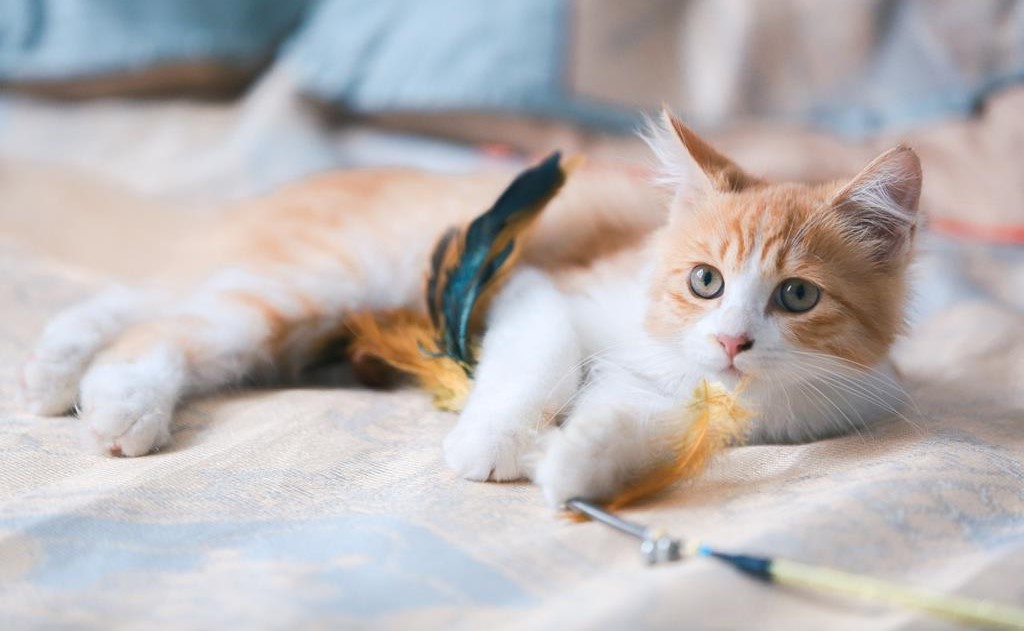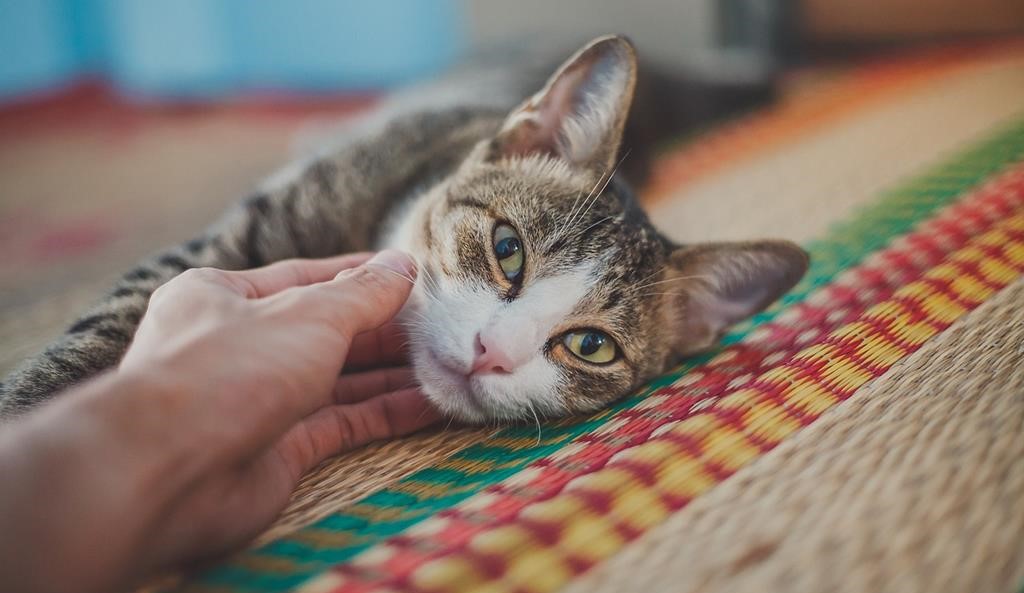Cats can experience diarrhea for various reasons, and as a concerned pet owner, it’s essential to identify the underlying cause and provide appropriate remedies. Diarrhea in cats can range from mild to severe and may be accompanied by other symptoms like lethargy, vomiting, or changes in appetite. In this article, we’ll explore common reasons why cats develop diarrhea and discuss 10 effective remedies to address this issue.
Common Causes of Cat Diarrhea:
-
Dietary Changes: Sudden changes in a cat’s diet can lead to gastrointestinal upset. Introducing new foods abruptly or feeding inappropriate table scraps can result in diarrhea.
-
Food Allergies or Intolerances: Cats may be sensitive or allergic to certain ingredients in their food. Common allergens include dairy, wheat, and certain proteins. Identifying and eliminating the culprit can help alleviate diarrhea.
-
Parasites: Internal parasites such as worms (e.g., roundworms, tapeworms) or external parasites like fleas can cause diarrhea. Regular deworming and parasite prevention are crucial.
-
Bacterial or Viral Infections: Infections from bacteria or viruses, such as salmonella or feline panleukopenia virus, can lead to diarrhea. Veterinary intervention may be necessary to treat the underlying infection.
-
Stress or Anxiety: Cats can be sensitive to changes in their environment, routine, or the presence of new animals. Stress or anxiety may manifest as diarrhea. Creating a calm and secure environment can be beneficial.
-
Ingestion of Toxic Substances: Cats may accidentally ingest toxic plants, household chemicals, or certain medications, leading to gastrointestinal distress and diarrhea. Keeping a safe environment is crucial.
-
Inflammatory Bowel Disease (IBD): IBD is a chronic condition that causes inflammation of the digestive tract. It can result in chronic diarrhea, weight loss, and other symptoms. Veterinary diagnosis and management are essential.
-
Pancreatitis: Inflammation of the pancreas can lead to digestive disturbances, including diarrhea. A vet can diagnose pancreatitis and recommend appropriate treatment.
-
Medication Side Effects: Certain medications, including antibiotics, can disrupt the balance of gut flora, leading to diarrhea. Always follow your veterinarian’s dosing instructions and inquire about potential side effects.
-
Organ Failure: Chronic conditions affecting organs such as the liver or kidneys can lead to diarrhea. Regular veterinary check-ups can help detect and manage these issues.
Effective Remedies for Cat Diarrhea:
-
Fasting: Temporarily withhold food for 12-24 hours to give the cat’s digestive system a chance to rest. Provide access to fresh water to prevent dehydration.
-
Bland Diet: Gradually reintroduce a bland diet such as boiled chicken or rice. This helps ease the digestive process and provides essential nutrients.
-
Probiotics: Probiotics can promote the growth of beneficial gut bacteria and aid in restoring a healthy balance in the digestive tract.
-
Hydration: Ensure your cat stays well-hydrated. Offer water frequently or use a syringe to provide small amounts of water if your cat is reluctant to drink.
-
Vet Consultation: If diarrhea persists for more than 24 hours or is accompanied by other concerning symptoms, consult your veterinarian for a thorough examination and diagnosis.
-
Anti-Diarrheal Medications: Your veterinarian may prescribe medications to alleviate diarrhea, but their use should be under professional guidance.
-
Parasite Control: Administer regular parasite prevention treatments to protect your cat from internal and external parasites.
-
Stress Reduction: Identify and address potential sources of stress in your cat’s environment to promote mental well-being.
-
Food Allergy Management: Switch to a hypoallergenic diet if food allergies are suspected. Your vet can guide you in selecting an appropriate diet.
-
Regular Veterinary Check-ups: Schedule routine veterinary check-ups to monitor your cat’s overall health and catch potential issues early.
While occasional mild diarrhea may resolve with home remedies, persistent or severe cases require professional veterinary attention. Understanding the potential causes and applying effective remedies can contribute to your cat’s comfort and well-being. Always consult with your veterinarian for personalized advice and guidance based on your cat’s specific health needs.
Common Causes Of Cat Diarrhea
Cat diarrhea can be caused by various factors, including dietary issues such as food allergies, intestinal parasites, and inflammatory bowel disease. Additionally, stress and anxiety, changes in medication, and viral or bacterial infections can also lead to diarrhea in cats.
Identifying the root cause of your cat’s diarrhea is essential in ensuring their overall health. Paying attention to their diet and any potential food allergies is crucial. Regular deworming can help in preventing intestinal parasites. Inflammatory bowel disease requires veterinary intervention and a tailored treatment plan.
Managing stress and anxiety through environmental enrichment and providing a consistent routine can also be beneficial. Any changes in medication should be monitored closely, and if diarrhea persists or worsens, seeking veterinary advice is recommended to rule out any viral or bacterial infections.
Identifying The Symptoms Of Cat Diarrhea
Diarrhea in cats can be a cause for concern. Identifying the symptoms is crucial. Watch out for frequent bowel movements and watery or loose stools. Blood in the stool is another red flag. Vomiting, loss of appetite, and lethargy are additional signs to look out for.
If your cat exhibits any of these symptoms, it’s important to consult with a veterinarian. They can provide a proper diagnosis and recommend the appropriate treatment. By understanding the symptoms of cat diarrhea, you can ensure your furry friend gets the care they need to recover quickly and comfortably.
Prioritize your cat’s health and seek professional advice as soon as you notice any unusual changes in their bowel movements.
When To Seek Veterinarian Assistance
When your cat has persistent diarrhea, it can be a sign of an underlying health issue. If you notice the presence of blood in their stool, it’s crucial to seek veterinarian assistance. Additionally, if your cat is vomiting frequently and has a loss of appetite, it’s important to consult a professional.
Dehydration symptoms, such as dry mouth and sunken eyes, should not be taken lightly. Moreover, sudden weight loss without any obvious reason can be a cause for concern. Remember, your furry friend relies on you for their well-being, so if you observe any of these symptoms, reach out to a veterinarian to provide the necessary care and treatment for your cat.
Home Remedies For Treating Cat Diarrhea
Cats can experience diarrhea for various reasons, but there are home remedies that can help alleviate their discomfort. Mild fasting, where you restrict their food intake for a short period, can allow their digestive system to rest and recover. A bland diet consisting of easily digestible foods like boiled chicken or rice can help soothe their stomach.
Probiotics and digestive enzymes can promote healthy gut bacteria and aid digestion. Encouraging increased water intake can prevent dehydration and aid in flushing out toxins. Adding a small amount of pumpkin puree to their meals can help regulate their bowel movements.
Herbal remedies like slippery elm bark, chamomile tea, and ginger can provide relief from inflammation and soothe their digestive system. Finally, bone broth can provide essential nutrients and hydration. These remedies can be effective in managing your cat’s diarrhea at home.

Medical Treatment Options For Cat Diarrhea
Cat diarrhea can be a concerning issue for pet owners. When it comes to medical treatment options, prescription medications can be effective. Anti-inflammatory drugs help in reducing inflammation in the digestive system. Antibiotics are used to treat diarrhea caused by infections.
Steroids can be prescribed for cats with inflammatory bowel disease. Fluid therapy is essential to prevent dehydration. These treatments aim to alleviate symptoms and improve the overall health of the cat. Veterinary guidance is crucial in determining the appropriate medication for your cat’s specific condition.
Remember to carefully follow the prescribed dosage and monitor your cat’s response to the treatment. With the right medical intervention, your cat can recover from diarrhea and regain its normal health.
Preventing Cat Diarrhea
Maintain a consistent diet by feeding your cat the same type of food every day. Introduce new foods gradually, mixing them with the old ones to avoid stomach upset. Proper hygiene and sanitation are essential to prevent infections and diarrhea.
Keep your cat’s litter box clean and wash your hands after handling it. Stress can trigger diarrhea, so it’s crucial to use stress management techniques like providing a calm environment and engaging in playtime. Regular vet check-ups are vital to detect any underlying health issues that could be causing diarrhea.
By following these guidelines, you can help prevent cat diarrhea and keep your furry friend healthy and happy.
Frequently Asked Questions On Why Does My Cat Have Diarrhea
Why Is My Cat Experiencing Diarrhea?
Diarrhea in cats can be caused by various factors such as dietary changes, intestinal parasites, bacterial infections, or underlying health issues. It is important to monitor your cat’s condition and consult a veterinarian if the diarrhea persists or is accompanied by other symptoms.
What Should I Do If My Cat Has Diarrhea?
If your cat has diarrhea, make sure to provide plenty of fresh water to prevent dehydration. You can also try feeding your cat a bland diet consisting of boiled chicken and rice. However, if the diarrhea persists for more than a day or is severe, it’s best to seek veterinary advice.
Can Stress Cause Diarrhea In Cats?
Yes, stress can cause diarrhea in cats. Cats can be sensitive to changes in their environment or routine, which can lead to stress-induced diarrhea. It’s important to create a calm and consistent environment for your cat and provide them with outlets for mental and physical stimulation to reduce stress levels.
Conclusion
To wrap up, if you find yourself wondering why your cat has diarrhea, it’s crucial to remember that there can be various causes. Dietary changes, food allergies, infections, or even underlying medical conditions may be the culprits. Being an attentive cat owner, it’s essential to monitor your feline’s behavior and consult a veterinarian if the issue persists or worsens.
By maintaining a well-balanced and consistent diet, providing plenty of fresh water, and ensuring a clean litter box, you can help prevent diarrhea in your cat. Remember to gradually introduce new foods to avoid digestive upset, and if necessary, consider trying specialized diets formulated for sensitive stomachs.
Above all, stay proactive and keep an eye on your cat’s health to ensure they live a happy and fulfilling life free from digestive troubles.



